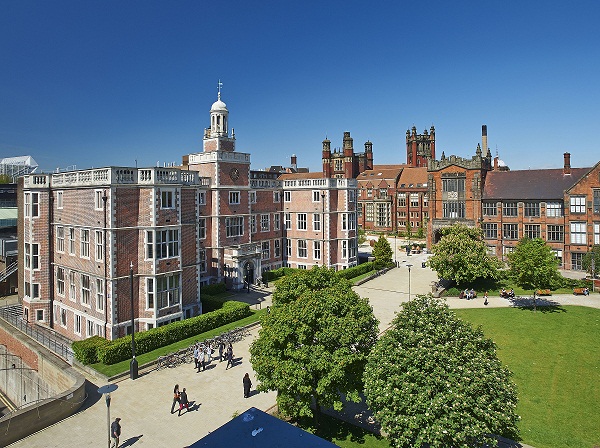Newcastle University moves up 20 places into the top 150 in the QS World University Rankings 2019.
Employers have ranked Newcastle University graduates as some of the best professionals in the world in a global survey of over 200,000 businesses.
Ranked joint 141st in the world, up from its position of 161st in 2018, Newcastle was placed 119th out of 1,011 institutions for graduating the best students.
Professor Chris Day, Vice-Chancellor and President, said: “Our performance in the latest QS World University Rankings reflects the impact of our world-class research and our commitment to high-quality teaching and preparing outstanding graduates.
“It is especially pleasing that we have scored so highly for academic reputation, which shows that academics from around the world regard us among the best institutions in terms of research.”
“Our strong employer engagement score highlights the brilliant work done by everyone at the University in helping our students develop relevant employability skills.”
Providing the best professionals
The QS employer reputation survey gathers the views of employers around the world on the institutions providing the best professionals. For the current ranking, about 43,000 responses were analysed.
Newcastle University has long-standing relationships with a range of regional, national and international businesses, including Nissan, Siemens, Procter and Gamble, GSK and Northumbrian Water.
Paul Doona, HR Advisor, Nissan Motor Manufacturing (UK) Ltd, said: “Having such a proactive University as Newcastle on our doorstep has allowed us to interact with top class students who have the drive to succeed.
“The University understands that it is not just about students gaining an excellent degree but that they learn the ‘soft’ skills they will need to start their journey into the world of work.
“The Placement Students and Graduates we have recruited via Newcastle University have been an asset to the Company and we plan to continue to build on this strong relationship in the years to come.”
Oliver Smith, recent Geographic Information Science graduate, is starting employment at Arup in September, after completing a summer internship with the same company.
He said: “Following completion of my degree, it will be great to work for a large engineering consultancy firm where I’d be able to continue using skills developed at University but also with the intention of further enhancing my Geographic Information Science and other geomatics skills.
“Newcastle University has been really helpful by running CV writing sessions and practice interviews. During the summer they helped me secure a three-week internship with Arup – a large engineering consultancy in Newcastle and I’m now joining the firm full-time after I graduate.”
This year’s edition of the QS World University Rankings features 1,011 institutions. The rankings compilers have drawn on over 1.2 million academic nominations, and nearly 200,000 employer nominations, while evaluating 4,763 institutions from 151 countries.
The strong results in the QS World University Rankings follow on the QS World University Rankings by subject, which places Newcastle University as one of the top institutions globally, featuring 28 of its subjects across all three faculties – the highest-ever number of courses for the University.
Newcastle University achieved the best possible outcome – a Gold Award – in the Teaching Excellence  Framework (TEF). Based on the evidence available, this means that the TEF Panel judged that Newcastle University delivers consistently outstanding teaching, learning and outcomes for its students of the highest quality found in the UK.
Framework (TEF). Based on the evidence available, this means that the TEF Panel judged that Newcastle University delivers consistently outstanding teaching, learning and outcomes for its students of the highest quality found in the UK.
Recently, Newcastle University was ranked 20th in the world in the prestigious Times Higher Education (THE) Golden Age University Rankings 2018. Evaluating 200 institutions from 44 different countries, the Golden Age University Rankings cover universities established in the two decades between 1945 and 1967. The table applies the same rigorous 13 performance indicators as the overall THE World University Rankings – with universities measured across their teaching, research, citations, international outlook and industry income.